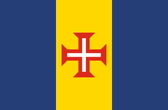
Call 0330 880 3600 Calls may be monitored or recorded. Opening Times.
- TRAVEL INSURANCE
- COVID-19 COVER
- More Options
- Help & Advice
- Existing Customers

Call 0330 880 3600 Calls may be monitored or recorded. Opening Times.

Need help?
UK Customer Services0330 880 3600*
Open Monday to Friday 9:00am to 6pm, Saturday 8:30am to 4pm and closed Sundays.
*Calls are recorded for training and quality purposes.

Official name: Autonomous Region of Madeira (Portugal)
Capital city: Funchal
Languages spoken: Portuguese
Population: Around 250,000
Currency: Euro (EUR)
Time zone: GMT
Driving side: Right
Climate: Subtropical, with mild, spring-like weather year-round; winters are cooler and wetter, summers warm and sunny, but never extreme
Madeira, a Portuguese archipelago in the Atlantic Ocean, is famous for its dramatic cliffs, lush forests, and terraced vineyards. Sometimes called the “island of eternal spring,” it combines rugged landscapes with charming towns and a long seafaring history. Funchal, the capital, offers a mix of traditional markets, modern resorts, and cultural attractions, while the island’s levada walking trails provide some of Europe’s best hiking experiences.
Madeira lies about 1,000 kilometres southwest of mainland Portugal. The main island is mountainous, with peaks such as Pico Ruivo and deep valleys covered in subtropical laurel forests. The surrounding smaller islands are mostly uninhabited, but together they form an important natural reserve.
Cristiano Ronaldo International Airport near Funchal is the main gateway, with regular flights from the UK and mainland Europe. Ferries also connect Madeira with Porto Santo, another island in the group. Public buses operate in Funchal and between towns, though many visitors choose to hire cars to explore the island’s steep and winding roads.
As Madeira is part of Portugal, UK citizens and many other nationals can visit visa-free for up to 90 days within the Schengen zone. Longer stays require appropriate visas or permits. Consular services are available through the British Embassy in Lisbon, with honorary consuls in Madeira providing local assistance.
The euro (EUR) is the official currency. ATMs and card payments are widely accepted, even in small villages. Madeira is generally affordable compared with mainland Portugal’s tourist hotspots, with good value food, drink, and accommodation.
Healthcare in Madeira is of a high standard, with hospitals and clinics in Funchal and other towns. Emergency services are reliable, and English is commonly spoken among medical staff. EU residents can use their EHIC/GHIC card for necessary care, but travel insurance is strongly recommended to cover private treatment and repatriation. Tap water is safe to drink.